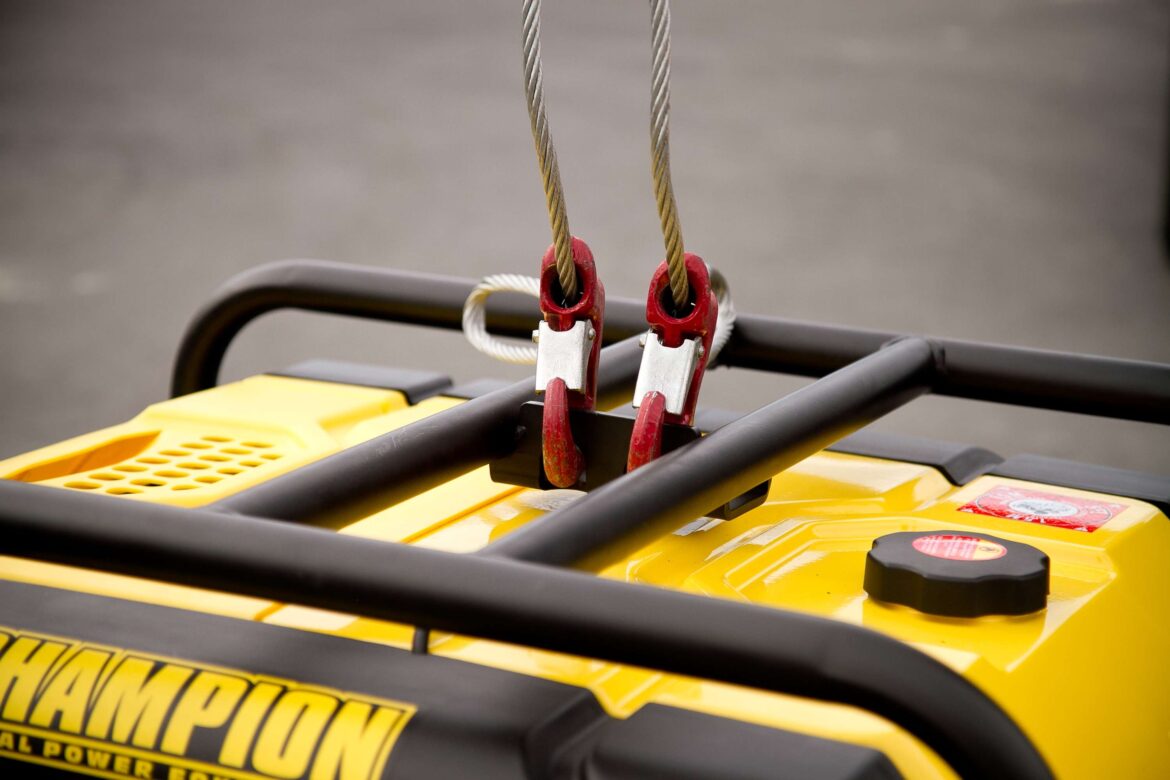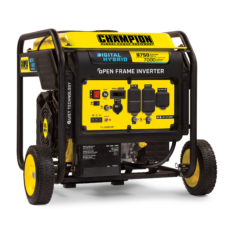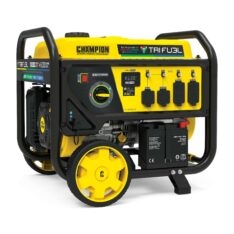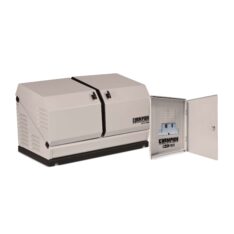Generators are valuable investments that provide backup power during outages or serve as a primary power source in remote locations. Whether you’re preparing for emergencies or planning outdoor activities, choosing the right generator can make a significant difference. In this buying guide, we’ll explore the different types of generators, determine how much power you need for your devices, discuss the types of fuel used, and highlight other key features to consider when purchasing a generator.
-
Sale!

Champion – 8750 Watt Open Frame Inverter Generator – 100520
$1,600.00$1,321.05 Select options Brand: Champion -
Sale!

Champion – 8000 Watt Tri Fuel Generator with CO Shield®- 100416
$1,383.00$1,178.07 Select options Brand: Champion -
Sale!

Champion – 12.5-kW Home Standby Generator – 100179
$4,121.99$3,933.13 Select options Brand: Champion
Types of Generators:
Portable Generators:
These versatile generators are popular for their mobility and are suitable for both residential and outdoor use. They come in various sizes and power capacities, making them ideal for powering essential appliances or tools during emergencies or outdoor activities.
Inverter Generators:
Known for their quiet operation and clean power output, inverter generators are perfect for sensitive electronics like laptops, smartphones, and televisions. They provide stable power, making them a preferred choice for camping, tailgating, or RVing.
Standby Generators:
Installed permanently outside your home or business, standby generators automatically turn on during power outages. They offer a seamless transition and can power your entire property, including appliances, heating and cooling systems, and more.
How Much Power Do You Need to Operate Devices?
- Make a list of all the devices you want to power: Include essential appliances like refrigerators, freezers, and sump pumps, as well as other devices such as lights, fans, computers, TVs, and power tools. Note down the wattage rating or power consumption (in watts or kilowatts) for each device. This information can usually be found on the device’s label or in the user manual. If the rating is given in amps (A), multiply it by the voltage (typically 120V for residential applications) to get the wattage.
- Determine the running wattage and starting wattage: Running wattage: This is the power consumption of the device when it’s operating normally. Multiply the running wattage by the number of devices you plan to run simultaneously. Starting wattage: Some devices, especially those with motors or compressors, require an initial surge of power to start up. The starting wattage is higher than the running wattage for these devices. Check the manufacturer’s specifications or consult the user manual to find the starting wattage. Multiply the starting wattage by the number of devices you plan to start simultaneously.
- Add up the total wattage: Add the total running wattage and the total starting wattage together to get the overall power requirement for all your devices.
- Consider any additional power needs: If you plan to add more devices in the future or have any specific requirements, account for them by including their wattage in the total calculation.
-
Sale!

Champion – 8750 Watt Open Frame Inverter Generator – 100520
$1,600.00$1,321.05 Select options Brand: Champion -
Sale!

Champion – 8000 Watt Tri Fuel Generator with CO Shield®- 100416
$1,383.00$1,178.07 Select options Brand: Champion -
Sale!

Champion – 12.5-kW Home Standby Generator – 100179
$4,121.99$3,933.13 Select options Brand: Champion
Choose a generator size:
Look for a generator that can provide at least the total wattage you calculated. It’s generally recommended to have some extra power capacity for future needs or unexpected surges. Note that generator manufacturers often provide different power ratings, such as running wattage and maximum or surge wattage. Ensure that the generator you choose meets your total wattage requirements.
Types of Fuel Used in Generators:
Gasoline:
Gasoline generators are common and easily accessible. They are suitable for short-term use and provide higher power outputs but may require regular refueling and proper fuel storage considerations.
Propane:
Propane generators offer cleaner-burning fuel, with longer shelf life and more stable storage than gasoline. Propane is commonly available in portable tanks or larger stationary tanks.
Diesel:
Diesel generators are robust and efficient, ideal for heavy-duty applications or extended use. They typically offer better fuel efficiency but may require professional installation and maintenance.
-
Sale!

Champion – 8750 Watt Open Frame Inverter Generator – 100520
$1,600.00$1,321.05 Select options Brand: Champion -
Sale!

Champion – 8000 Watt Tri Fuel Generator with CO Shield®- 100416
$1,383.00$1,178.07 Select options Brand: Champion -
Sale!

Champion – 12.5-kW Home Standby Generator – 100179
$4,121.99$3,933.13 Select options Brand: Champion
Other Key Features to Look for in a Generator:
Run Time:
Consider the generator’s run time on a full tank of fuel, as it determines how long it will provide power before needing refueling.
Portability:
If mobility is crucial, opt for a generator with sturdy wheels and a foldable handle for easy transportation.
Noise Level:
Generators can be noisy, so if you prioritize quieter operation, look for models specifically designed for reduced noise output.
Outlets and Connectivity:
Check the number and type of outlets available, including USB ports or RV-ready outlets, to ensure compatibility with your devices.
Safety Features:
Look for features like low oil shutdown, overload protection, and automatic voltage regulation to protect both your devices and the generator itself.
When purchasing a generator, consider your power needs, the type of generator that suits your requirements, the fuel type that aligns with your preferences and availability, and additional features that enhance convenience and safety.
By understanding these key aspects, you can make an informed decision and select a generator that provides reliable power whenever and wherever you need it.
If you still have questions, you can contact us via live chat, phone at +1 (877) 414-1865, or email at [email protected]. Our experts will always be available to help you!
To stay on top of all our coupons, check: https://www.wethrift.com/claveberg




